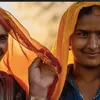How Tech4Good Community is helping 600 NGOs scale through curated tools and solutions
The social change initiative – Tech4Good Community, incubated by The/Nudge Centre for Social Innovation, has built a unique platform OTTER that allows NGOs to access tools and mentorship for top tech firms.
According to official statistics, there are over 3.4 million non-profit organisations (NGOs) operating in India. The sector, which works with some of the most marginalised sections of society, has also been the most reticent when it comes to adopting technology. This has created a multitude of challenges, including obsolete and unreliable data management systems (still largely paper-based) and limited access and awareness about the various schemes that exist, which can be passed on to beneficiaries.
On the bright side, leaders and decision-makers in NGOs are aware of the advantages that leveraging technology can bring to their efforts, including better operational efficiency and wider impact. However, a major concern is the cost involved and the big misconception that any tech investment will make a significant dent in already meagre funds.

Tech4Good founders Anusha Meher Bhargava, Rinju Rajan and Akhila Somnath
Changing that notion is the Online Tech Training Engagement Resource (OTTER) developed by Tech4Good Community, a social change initiative that offers NGOs access to tools and mentorship from companies like , Salesforce, , , and . Tech4Good Community was incubated by The/Nudge Centre for Social Innovation.
“It's the first time in India that a platform exists for NGOs to be able to go and understand their level of tech, and also become aware of what is there for them in terms of technology for better operational use,” says Rinju Rajan, who co-founded Tech4Good Community in 2018 with Anusha Meher Bhargava and Akhila Somanath.
Bridging the technology gap
In India, the widest technology gap exists at the grassroots level. The first step for the Tech4Good team was therefore to create awareness among the NGOs working on the ground, and increasing their access to these tools. The team also reached out to software companies to offer mentorship or access to their products and overall tech solutions.
“Sometimes, it might not be just one tool but a string of solutions for what they're doing,” says Rinju, speaking to SocialStory. The third aspect that the team focuses on is building capacity within the nonprofits, where the mentorship is not just a one-off session but getting the team to understand the tool so they are equipped to become the next set of trainers. Once the right tools are in place, the overall end-to-end efficiency improves from the beneficiaries to reporting back to the donors and other stakeholders.
‘“We are often asked questions around tech budgets, availability of in-house IT staff and other barriers to quick tool adoption. Having access to a curated list of tools that are relevant to the sector can oftentimes be the fix one is looking for. A single source of information that eliminates confusion and loss of valuable time for nonprofits.” says Anusha.
Rinju adds that connecting is just a small part of what the team does. “We drive that whole mentorship programme and speak to the corporates to have discounts on their products for nonprofits. We then report back on how their tools have been used on the ground,” she says.
OTTER offers multiple benefits for different stakeholders:
- NGOs – creates awareness, capacity building, offers/discounts, access resources and networks, and tech maturity assessment
- Toolmakers – business expansion, tool adoption insights, real-time feedback, competitor analysis, and employee engagement
- Tech mentors – contribute to the sector of interest, a platform to feature tool, peer-to-peer connect, upskilling and building a tech volunteer network
- Funders – understanding tech gaps, feature funding initiatives, fund tech capacity building, ecosystem building, improve tech capacity of portfolio
On the ground
The team currently works with 600 NGOs across the country. They recently successfully undertook a project with the Sunbird Trust, an NGO that is working to educate 25,000 children and youth in conflict-affected areas in the North-East by 2025.

Akhila and Anusha with women beneficiaries of Vasantham Federation, a Tamil Nadu-based organisation of and for persons with disabilities.
Their three primary areas of focus are:
- providing financial resources to sponsor the students in school and college
- building schools and hostels, and
- encouraging socio-economic development in the region via community intervention and capacity building, which is carried out by teams from Teach for India and Gandhi Fellowships awardees.
The challenges Sunbird Trust is facing include access to government schemes in the communities it worked with and knowledge mapping. The team was primarily collecting data on paper forms that were subsequently collated and manually digitised.
“I was introduced to Open Data Kit (ODK) by a colleague who had attended the Google-Tech4Good Community Summit in 2019. The tool was simple enough and I built and deployed a form,” says Pratip Ganguly, Community Development Manager, Sunbird Trust. He says that the tool allowed data to be collected offline and synced later, which was a significant advantage in remote villages where internet connectivity was an issue.
In 2020, Pratip and his colleagues attended a session on ODK led by Ashoka Trust for Research in Ecology & the Environment) ATREE, another Tech4Good Community partner nonprofit at the Tech4Good Spotlight Series.
“All of us immediately saw value in the tool. It also saved us a lot of time that we’d previously spent collating and digitising information,” says Pratip, explaining that with the ODK, a team of four to five Sunbird volunteers conducted a survey of 200 individuals from 12 villages in just 10-15 days.
“This information has been instrumental in planning interventions in partnership with Hakdarshak, where the communities will not only be made aware of but also get access to schemes other than NREGA, PM Kisan, Awas Yojna – which close to 80 percent of the surveyed population already had access to,” he says.
Based on the findings of their survey, Sunbird and Hakdarshak will enable access to government schemes to 1,000 households from nine villages in Manipur. They are also planning to extend the use of the ODK for COVID-19 relief interventions.
“It is great to see all the data in an Excel spreadsheet, without the hassle of inputting the information manually”, says Pratip.
Data collection continues to be one of the biggest challenges that NGOs working at the grassroots level face. With a majority of the data still stored on paper, there has been massive data loss in the aftermath of natural disasters.
“Many nonprofits are unaware of tools for data collection. They have a perception that tools can be expensive and instead rely on Excel or even paper to collect data. Although these methods work just fine for collecting data, the issue lies in collating actionable insights from this information, as most of it exists in silos and is difficult to make sense of later. This impacts reporting, funding and decision-making,” says Akhila, explaining that discontinuous and scattered information not only hampers the process of reporting back to stakeholders, but also makes accurate analysis a challenge.
This is where a platform like OTTER makes a difference as it addresses the main challenge that NGOs face, which is spending time searching for a solution rather than solving a problem.
OTTER allows nonprofits and mentors to discover each other with ease.
“As soon as a nonprofit signs up on OTTER, they get a diagnostic tool to identify any technological gaps they face, and tools to bridge that gap. The platform has the potential to help nonprofits quickly become more impactful,” says Anusha.
Calling technology an enabler, Rinju says, “It has an amplifying effect when used well. Robust process and project management systems can create more impact for existing beneficiaries as well as help scale their operations to grow beyond their communities and geographical boundaries.”
Edited by Kanishk Singh








